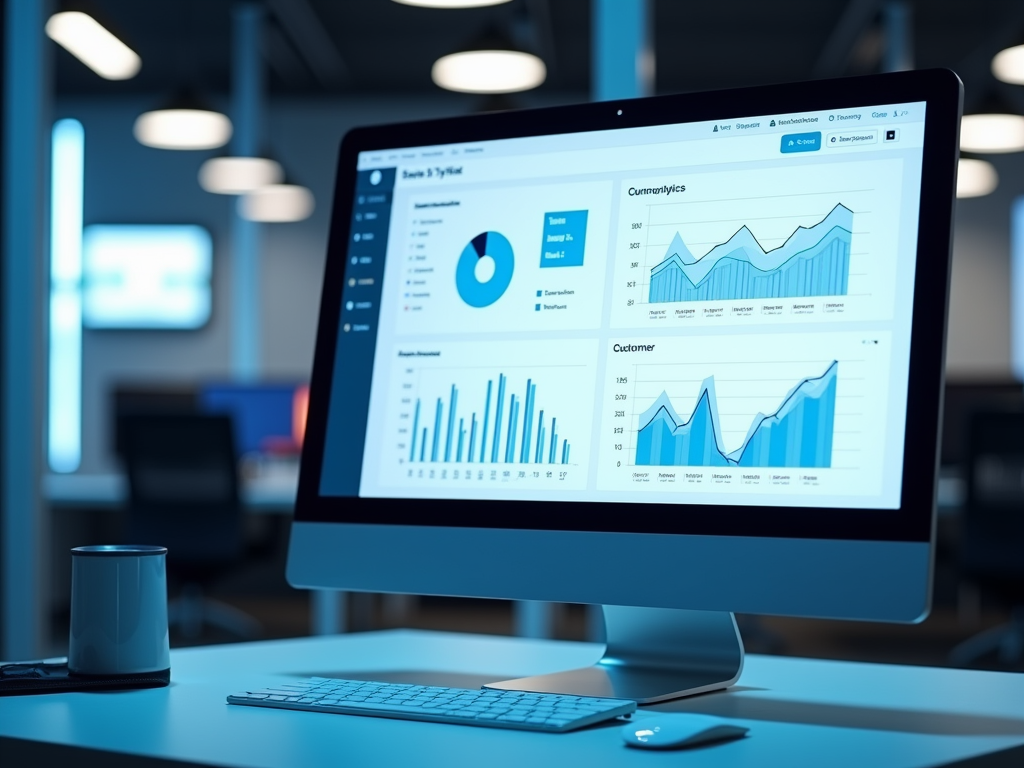Big data plays a transformative role in Dubai’s retail industry, revolutionizing how businesses understand consumer behavior, optimize operations, and enhance customer experiences. The vast amounts of data generated from various channels, including online shopping, in-store transactions, and social media interactions, enable retailers to make informed decisions. As Dubai positions itself as a global retail hub, leveraging big data allows companies to stay competitive and cater to the evolving preferences of their customers. By harnessing this data, retailers in Dubai can improve their marketing strategies, inventory management, and personalization efforts. The integration of big data into retail not only drives sales but also paves the way for innovative solutions that redefine the shopping experience.
Understanding Big Data and Its Importance

Big data refers to the immense volumes of structured and unstructured data generated from various sources. In the retail sector, this data encompasses customer purchase histories, social media interactions, website analytics, and even in-store foot traffic. The importance of big data in retail lies in its ability to provide actionable insights that facilitate strategic decision-making. Retailers can analyze patterns, predict trends, and enhance product offerings based on real-time data. Furthermore, understanding customer preferences through big data analytics enables targeted marketing initiatives that can significantly increase conversion rates. In a city like Dubai, renowned for its diverse population and booming tourism sector, the ability to comprehend and cater to varied consumer needs is indispensable.
Enhancing Customer Experience through Personalization

Personalization is key to improving customer satisfaction and fostering brand loyalty. Big data enables retailers to tailor their offerings to individual customers by analyzing previous purchasing behavior and preferences. This tailored approach can manifest in various ways, including personalized marketing campaigns, product recommendations, and exclusive offers. By utilizing data analytics tools, retailers can create detailed customer profiles that inform their strategies and actions. The following strategies illustrate how big data enhances personalization in Dubai’s retail environment:
- Targeted Promotions: Offering discounts or promotions based on customer browsing history and preferences.
- Customized Shopping Experiences: Creating unique in-store experiences that resonate with individual customer tastes.
- Product Recommendations: Using algorithms to suggest products that align with a customer’s previous purchases.
- Feedback and Surveys: Leveraging customer feedback collected through various channels to refine product offerings.
Efficient inventory management is crucial for retailers looking to maximize profitability while minimizing waste. By analyzing sales trends and predicting future demand using big data, retailers can optimize their inventory levels. This data-driven approach helps avoid overstocking or stockouts, which can adversely affect sales and customer satisfaction. Additionally, retailers can analyze seasonal trends and adjust inventory accordingly, meeting customer demands without carrying excess stock. Implementing predictive analytics can ensure that retailers stock the right products, in the right quantities, at the right time. In a dynamic market like Dubai, where consumer preferences can shift rapidly, effective inventory management becomes essential for retail success.
Driving Marketing Strategies with Data Analytics
In the competitive retail landscape of Dubai, effective marketing strategies are key to standing out. Big data enables retailers to analyze customer demographics, purchase behaviors, and preferences, leading to more effective marketing initiatives. By understanding which channels yield the best results and what messages resonate with their target audience, retailers can optimize their advertising efforts. Data analytics can help segment customers into distinct groups, allowing for tailored ad campaigns that speak directly to each demographic. Furthermore, retailers can track the performance of their marketing campaigns in real-time, adjusting strategies based on immediate feedback. This agility helps businesses stay relevant in an ever-evolving market.
Conclusion
In conclusion, big data is fundamentally reshaping Dubai’s retail industry by providing valuable insights that enhance customer experiences, optimize inventory, and refine marketing strategies. Retailers who embrace big data analytics can better understand and meet the diverse needs of their customers, ensuring they remain competitive in a fast-paced market. As the retail landscape continues to evolve, the integration of big data will be pivotal to driving innovation and delivering superior offerings in Dubai’s vibrant retail scene.
Frequently Asked Questions
1. What is big data in the context of the retail industry?
Big data in retail refers to the large volume of structured and unstructured data generated from customer interactions, preferences, and behaviors that can be analyzed for actionable insights.
2. How does big data improve customer experience?
Big data enables retailers to personalize customer interactions, recommend relevant products, and create tailored marketing campaigns, enhancing overall customer satisfaction.
3. What are some applications of big data in inventory management?
Big data helps retailers predict demand, optimize stock levels, avoid overstocking or stockouts, and analyze seasonal trends for better inventory decisions.
4. Why is targeted marketing important in Dubai’s retail industry?
Targeted marketing allows retailers to reach specific customer segments with tailored messages and offers, leading to higher conversion rates and customer loyalty in a diverse market like Dubai.
5. How can retailers begin to leverage big data?
Retailers can start leveraging big data by implementing data analytics tools, collecting data across various customer touchpoints, and analyzing this data to inform strategic decisions.


